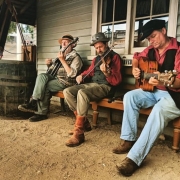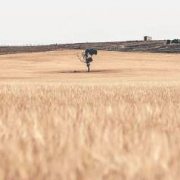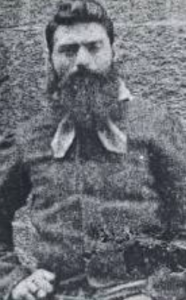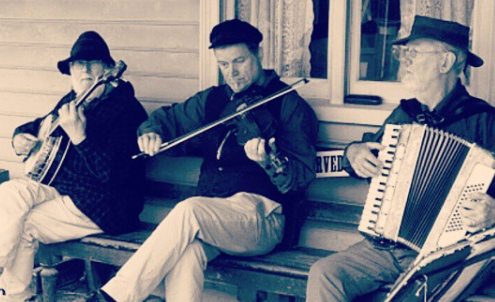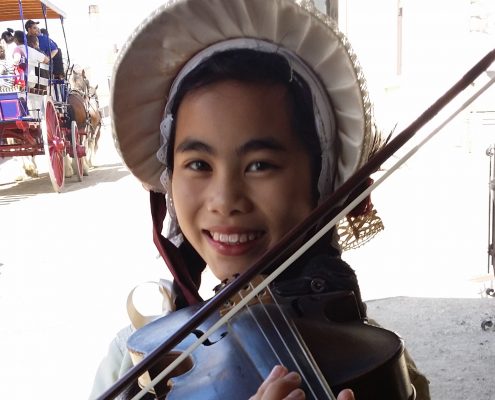Parsons, strathspeys and rough justice
Well strike me pink, I’d sooner drink
With a cove sent up for arson,
Than a rain-beseechin’, preachin’, teachin’
Cranky bloody parson.
The old rhyme’s banging through my head like a tattoo as I try to concentrate on the tune at hand, an elegant strathspey the parson beside me is pumping out on his squeezebox as we labour away musically at Sovereign Hill.
Not that he’s a cranky bloody parson; a while back, in fact, he delivered last rites to an unfortunate infarction victim whose ticker didn’t quite carry him fully up the hill. Very white of him.
The poor deceased was in troublesome health and he’d been well warned about our goldfields precinct but, committed patron he was, he thought what the devil, you only live once.
Regrettably, you only die once too. Unless you’re one of the worthies from the Sub Continent who arrive with their orange beards, pink turbans, lurid purple and lime shirts and retina-burning white trousers. They come back all the time.
It’s an old hack’s maxim, too, that musicians don’t fear death because they do it so many times when performing. Yes, very droll but most neo-colonial fiddlers’ spiritual leanings don’t extend naturally to reincarnation and deathbed sacraments. They’re more, umm, secular.
That strathspey’s bouncing along with a sweet jaunt as one of the corpulent worthies feigns to park his carcass on top of mine to have his daguerreotype taken with a lumpy i-tablet camera. Or maybe it’s a phablet, I don’t know. All I know is he’s stopping me from playing and couldn’t give a tinker’s cuss about it — not that I really care, that’s what we’re there for, our good looks.
They’re only human, of course. Who wouldn’t want their photo taken with a clutch of craggy, weather-worn, ruggedly handsome goldfield musicians? Pity they’ve landed us slack-jawed, rheumy-eyed, bewhiskered darlings.
I glance at my parson confrere, who’s seems inured to the intrusion. He’s had his day putting worthies and their likes in their place. Such as the magnificently named James Bond Moussaka — maybe it was Mousenka or somesuch epithet but I prefer the Hellenic tag.
The hapless, recidivist crook with the 007 title came up against the parson when the latter parked his carcass behind the bench as a magistrate in a Zimbabwe jurisdiction. James, in desperation, had robbed a postman on his bike. Together with his priors, it earned him a sentence at the governor’s pleasure, with a minimum of seven years.
He didn’t take kindly and bellowed his approbation from his cell beneath the court: “There’s no fecking justice!”
To my parson’s credit, he didn’t send James off to be flogged, they still did so in those days, but off to the high court.
Curiously enough, James had literary ambitions but probably cruelled his chances with a short story he penned about the jurist banging away on the accordion beside me; a pithy little fiction about torturing and ultimately despatching him. Seems he had a thing about cranky bloody parsons.
None of this, of course, is insinuating its way into the grey matter of the worthy spreading his plump, powdered anatomy across me. I smile diligently, with a thumbs up for good measure, but demur as he tries to snatch my fiddle for his amusement. Nothing doing sport, I smile. Insurance.
His grin assumes a rictus normally associated with too strong a curry and he finally separates himself, making way for a dozen more who take his lead.
We bound into a tune called The March of the King of Laois; seems kind of fitting but it’s awkward with your elbows cramped by visitors. The parson stares into the distance, another dimension perhaps.
Fair bet it’s not The Raj. Wherever it is, it triggers a story about another African encounter, one in which he imbibes a confiscated witchdoctor’s brew made from various well-fermented ingredients, including an unborn human foetus.
“A little like the Irish poteen,” he recalls, citing the illicit potato drop of preference in God’s green land.
“Fortunately, it tasted better.”

